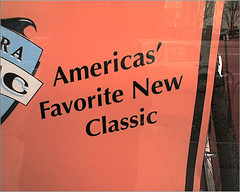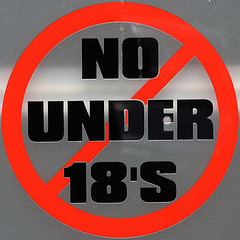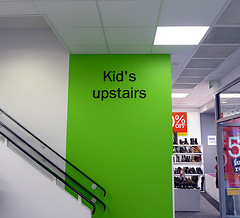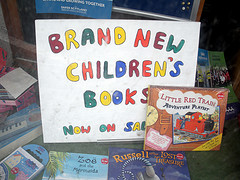1.2 Sonia's and Paco's books are different
Here you are a summary of Sonia's explanation:
| Andrés's, Paco's and Alex's friends go out on Saturdays |
Some friends are Andrés's, others are Paco's, and others are Alex's. |
| Andrés, Paco and Alex's friends go out on Saturdays | Andrés, Paco and Alex have the same friends |
Decide which of the following sentences is correct.
1. Several of these tennis balls belong to Andrés. Others are Paco's.

|
| By Relly Annett-Baker. C. Commons |
|
There you'll find Andrés's and Paco's tennis balls.
| |
|
There you'll find Andrés and Paco's tennis balls.
|
|
Sonia's and Paco's books are on that shelf.
| |
|
Sonia and Paco's books are on that shelf.
|
|
Sonia's and Paco's parents are leaving for Madrid next weekend.
| |
|
Sonia and Paco's parents are leaving for Madrid next weekend.
|
The apostrophe (') in the Saxon Genitive is quite frequently misused. Read the following signs and posters carefully.
|
1.

|
2.

|
3.

|
||
| By Anonymous. C. Commons | By Alice J. Robison. C. Commons | By LEOL30. C. Commons | ||
|
4.

|
5.

|
6.

|
||
| By Glamhag. C. Commons | By Gordon Joly. C. Commons | By duncan c. C. Commons |
Saxon Genitive vs. Norman Genitive
As you can see, the apostrophe is quite often misused, so try to learn to use it correctly.
- Practice it by clicking here.
Up to now, we have talked about the Saxon Genitive or the Genitive Case. They are not the same. The Genitive Case is used to express far more relationships than that of possession. For example, the phrase a glass of milk is genitive, but it is not Saxon Genitive, since the milk does not possess the glass. The Saxon Genitive derives its name from the Anglo-Saxon, since in Old English, the genitive was formed by adding -es to the noun. As we now know, in modern English 's is added.
Nevertheless, it is not the only way we have to refer to possessions or relationships. We also have, as you guessed at the beginning of the topic, the well-known of-construction or Norman Genitive, and this is what we will study in the last section of the topic.